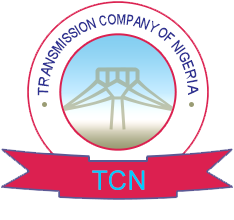Arising from the need to provide reliable and affordable electricity in West Africa, Ministers of Power/ Energy from four ECOWAS countries met to discuss the execution of the WAPP North Core Project that would connect Nigeria – Niger – Togo and Burkina Faso.
The Ministers from the four countries met recently at the 4-day grand session of the inaugural Joint ministerial steering committee (JMSC) meeting of the West African Power Pool (WAPP) on the North Core Interconnection Project which commenced on Thursday, 10th June 2021, in Abuja.
In his address at the meeting, Nigeria’s Minister of Power, Engr. Sale Mamman disclosed that about two-third of the people in sub- Saharan Africa, approximately 600 million people, are without access to electricity in spite of abundant natural resources.

According to him “The lack of reliable and affordable electricity significantly constrains economic activity and growth in these countries and affects disproportionally the poorest segment of the population of the sub-region, which in turn, has a profound impact on health and social service delivery particularly vulnerable groups such as elderly people, children and women”.
The Minister explained that within the framework of the Priority Projects under the WAPP Master Plan, the governments of Nigeria, Niger, Togo, Benin and Burkina Faso through their collaborative effort, have developed a sub-regional interconnection project referred to as the 330kV North Core Regional Interconnection Project. This he said was considered as one of the priority projects in the infrastructure program of the WAPP aimed at facilitating efficient energy trade in the sub-region among other benefits.

Engr. Mamman who confirmed that the project has already been assented to by the ECOWAS Heads of State and Government, in their approval in December 2018, of the ECOWAS Master Plan for Development of Regional Generation and Transmission Infrastructure 2019-2033, said the launch of the project in 2019 could not have come at a better time, as it was one of the key envisaged solutions for coping with the large electricity supply-demand imbalance within the ECOWAS region.
In his word “The WAPP-North Core Regional Interconnector is seen as a game changer that could shape the energy landscape of the sub-region through effective and efficient power trade, even as the World Bank estimates that power trade within the West African Power Pool could lead to cost savings of U$58.0 billion per year, enabling WAPP-covered countries to benefit from more cost effective hydro or gas-based imports’.
The Minister further explained that the project will involve the construction of 875km of 330 kV and 24 km 225 kV transmission lines from Nigeria to Burkina Faso, through Niger and Benin with associated substations. He mentioned that the project will also include the electrification of rural communities located within a 5 km radius on both sides of the line, and the implementation of several environmental and social mitigation measures such as the execution of Resettlement Action Plans to provide compensation for persons and communities affected by the project.
Engr. Mamman however noted that this large – scale project being financed by the African Development Bank (AfDB), Agence Francaise de Development (AFD), the World Bank (WB) and the Federal Government of Nigeria, will on completion, be handed over to the utility companies of the participating countries for operation and maintenance of the entire infrastructure.
On his part, the ECOWAS Commissioner for Energy and Mines, Mr Sediko Douka, expressed appreciation to the Nigerian government and TCN for hosting the Project Implementation Unit (PMU) in Abuja. According to him, connecting four countries by a 330kV high voltage transmission line would facilitate electricity trade, technical assistance and trade agreements in the sub-region. “This project will allow initial energy exchange of 430 megawatts (MW) which could reach 600MW in five to ten years after its launch and could boost trade exchange which is at five percent now among the 14 interconnected countries of ECOWAS” he said.
Mr Douka urged the participants to work towards realising the dream project which would complement two other WAPP interconnection projects such as the 1,700km Senegal, Gambia, Guinea and Guinea Bissau and 1,300km Cote d’lvoire, Liberia, Sierra Leone and Guinea transmission line that will help to increase access to electricity in West Africa.
Speaking also at the occasion, the Secretary General of WAPP, Mr. Siengui Appolinaire Ki, said the project was being implemented according to the new model of institutional framework for implementation developed by WAPP and the countries concerned and that the project is scheduled to be commissioned by the second half of 2023.
According to him, “The completion of the project would undoubtedly bring to reality, ECOWAS’s dream of embedding national electricity networks in a unified regional electricity market with a view to ensuring, in the medium and long term, a regular, reliable, and competitive cost supply of electricity to the populations of the Member States”.
Heads of Utilities Meeting Earlier at the Meeting of Heads of Utilities of countries within the North Core project, the Minister of Power, Engr. Sale Mamman, urged all member countries of WAPP to continue to support the initiative in view of its critical importance to the achievement of the West African Power Pool (WAPP) Interconnection Project.
Noting that the expected impact of the project on the member states when completed will include reduction in the cost of electricity, export of electricity from Nigeria to the three countries, growth in economic activities through improved electricity availability and affordability.
He said “With abundant Gas resources in Nigeria and the efforts of the present Administration of the Federal Government of Nigeria to strengthen the power sector, Nigeria has the potential to generate and export low-cost electricity to the sub-region with the adoption of competitive procurement of power within the commercial framework of the North Core Project”.
The WAPP Executive Board Chairman and Acting Managing Director of TCN, Engr. Sule Ahmed Abdulaziz, said that the Head of Utilities Meeting would enable members review the project and to ensure that the participating countries will get maximum benefit. He affirmed that Nigeria is committed to the project in line with Presidential Power Initiative towards developing robust power sector capacity.
The WAPP North Core Project involves the construction of 880 Km and 330 kV transmission lines from Birnin Kebbi to Ouagadougou via Zabori and Niamey and from Zabori to Malanville respectively, with five (05) associated processing stations to enable electricity exchange between Nigeria, Togo, Niger, Benin and Burkina FasoThe cost of the project is put at USD 568.16 million and will be completed in the first quarters of 2023.
Experts Meeting Meanwhile, earlier, during the WAPP experts meeting, with development partners member utilities from the various countries made presentations on power offtake by their respective countries as part of the requirement for the North Core Project implementation.
The meeting also enabled the review of the commercial framework of the project to ensure that all Utilities, Market participants, and countries will get the maximum benefit from the project when completed.
Expectedly, for Nigeria, the WAPP North Core project would encourage greater output from the generation companies, encourage trans-border electricity market across the West African Sub-Region and contribute to actualizing the WAPP mandate.
WAPP is currently carrying out various priority transmission projects in line with its Master Plan of 2019 to 2033.
 TRANSMISSION COMPANY OF NIGERIA
TRANSMISSION COMPANY OF NIGERIA
